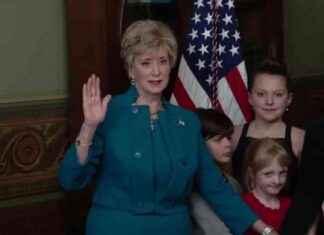The Minister of Culture and Sports, also president of the PSC, Miquel Iceta, has been in favor of the newly appointed secretary general of Junts, Jordi Turull, being part of the members of the Catalan delegation at the dialogue table between governments , an opinion that contradicts the official version released by the central government and the republican part of the Government, which says that only members of both executives, therefore ministers and consellers, can be part of that table.
“And why not; if they designate him…”, Iceta accepted when asked in RAC1 specifically about Turull’s eventual presence at the table. And it is that after having been pardoned by the Government and having agreed to the organic position of secretary general of Junts in substitution of Jordi Sànchez, the socialist minister believes that “he is a valid person to do politics and be a political actor”.
Iceta’s permission contradicts the version given from the beginning by the President of the Generalitat, Pere Aragonès, not to accept the proposal that Junts made for his representation at the table. In that proposal there was only one member of the Government, the vice-president Jordi Puigneró, but the rest were leaders of the party (the then general secretary Jordi Sànchez, the own Turull and the deputy in the Congress Míriam Nogueras). On the Republican side of the Government are the Councilors for the Presidency, Laura Vilagrà, and the Minister for Business, Roger Torrent.
Aragonès’ veto of members of Junts who were not ministers received the support of Moncloa, where they joined the president’s argument that members of the two governments should sit at a dialogue table between governments. Thus, on the part of the central Executive there are five ministers: the Presidency Minister, Félix Bolaños; the Minister of Territorial Policy and spokesperson Isabel Rodríguez; Iceta himself; the second vice president Yolanda Díaz, and the Minister of Universities, now Joan Subirats.
The possible incorporation of Junts to the dialogue table is something that has been discussed in recent weeks, since the Prime Minister, Pedro Sánchez, indicated in an interview in La Vanguardia that he would like “to see Junts at the table of dialogue with Catalonia.” However, the post-convergents have been discrediting the holding of this forum from the beginning and insisting that there is no real will for dialogue on the part of the central government.
Before the next meeting between presidents, scheduled for after the debate on the state of the nation, Iceta has expressed hope that at least one date will come out for the holding of the second meeting of the dialogue table under the mandate of Aragonès. “After almost a year of hiatus in large formal meetings, not in dialogue, it would be very positive to give a boost”, he said, because “there are more who believe that unilateralism is not valid”.
In this sense, the minister has shown that despite the fact that the situation in Catalonia is experiencing greater calm thanks to the granting of pardons, “the problem is still there, we continue to have it on the table”. And it has shown the distance in the treatment of the problem between the current Government and that of the PP, which maneuvered to set up the so-called operation Catalunya “In addition to committing possible crimes”, the PP made a “fundamental mistake: thinking that political problems could be resolve non-politically”.
Iceta has also referred to the frustrated unitary candidacy for the Olympic Games. winter 2030. The minister has regretted the disagreement and has ruled out the possibility that the COE promote a candidacy for that year, although Catalonia has insisted on presenting it alone. It would be another thing for 2034, although the leader wanted to make it clear that it will be the Spanish Olympic Committee who will have the last word, even in the event that it finds itself with several possible candidates: “If there is more than one, it will be the COE who decides which one contributes to the IOC”, he pointed out.








